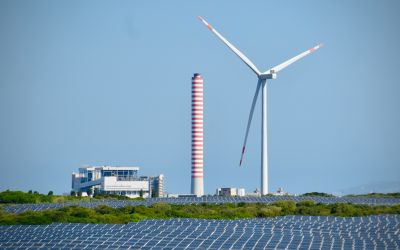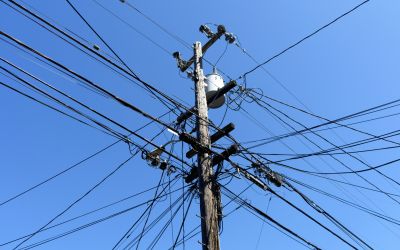Environmental campaigners endorse GMO as EC considers revising GM crop trading legislation
Leading environmental campaigners are revising their opposition to GM food stuffs while the EC considers devolving GM crop decision-making to individual member states.
Leading environmental campaigners have revised their opposition to both nuclear energy and genetically modified foods, saying that their resistance had not only encouraged the use of coal-fired power stations but prevented developing nations from benefitting from a technology that could have helped feed millions of starving individuals.
These revelations follow environmental lobbies and campaigners blaming their loss of influence on public opinion on hyperbolic and somewhat exaggerated claims. Campaigners are now searching for a "more pragmatic and realistic way of engaging with people" on major environmental issues.
Stewart Brand, an American activist and former editor of Whole Earth Catalog, said, "I would like to see an environmental movement that says it turns out our fears about genetically engineered food crops were exaggerated and we are glad about that. It is a humble and modest stance to take to the real world."
In addition Patrick Moore, a founding member of Greenpeace, acknowledged that, by lobbing against construction of nuclear plants, environmentalists had in fact contributed to coal-fired plant production. This, in turn, had resulted in billions of tonnes of extra CO2 being emitted.
He said, "We have caused extra gigatonnes of greenhouse gases to be released into the atmosphere by being so precious about nuclear."
This revision comes in the same week that the EU grain lobby has spoken out over proposals to devolve decision-making on the commercial cultivation of GM crops to individual EU member states. The lobby warned that allowing individual states to either ban or allow the use of GMO crops could disrupt internal trade and create a 'patchwork economy'.
Last month, EU farm ministers delayed making a final decision on the proposal from the EC aimed at ending a long-standing deadlock on the topic. Many argue the proposal would disrupt the bloc's single goods and services market as well as disadvantaging farmers in some countries.
Governments would be given the opportunity to ban GMO crops on a socioeconomic, social or even moral basis. Several MEPs have spoken out, saying the proposals could undermine scientific debates over the viability of genetically modified food stuffs.
George Lyon, Liberal Democrat MEP for Scotland, said, "Decisions on new technologies such as GMs should only be based on scientific advice … Without the bedrock of scientific advice to anchor decisions, you risk setting a dangerous precedent in choosing what is popular over what is safe."
risk setting a dangerous precedent in choosing what is popular over what is safe."
The EC is expected to publish a set of reports discussing the environmental risk assessment of GM crops by the end of the year.
The growing of GM crops remains a heated topic for many nations. During the meeting on the Cartagena Protocol on Biosafety-held days before the Biodiversity summit in Nagoya-participating nations from across the globe agreed to put in place a liability and redress regime in case of contamination caused by GMOs.
The agreement will hold business operators liable if genetically modified organisms which have been imported from other countries pollute ecosystems and risk human health.
An international change in legislation may alter the ease with which GM crops, such as 'Golden Rice', are traded. Designed specifically to combat Vitamin A deficiency among nations consuming large amounts of white rice, the crop would be dispersed free of charge and has so far caused no problems with existing biodiversity in testing areas.
Despite these advancements, there are still fears that genetic modification allows private sector companies to create new strains and ultimately control food supplies largely in developing nations.
Author: Tom Watts | Climate Action
Images: Peter Blanchard & donnamarijne | Flickr






